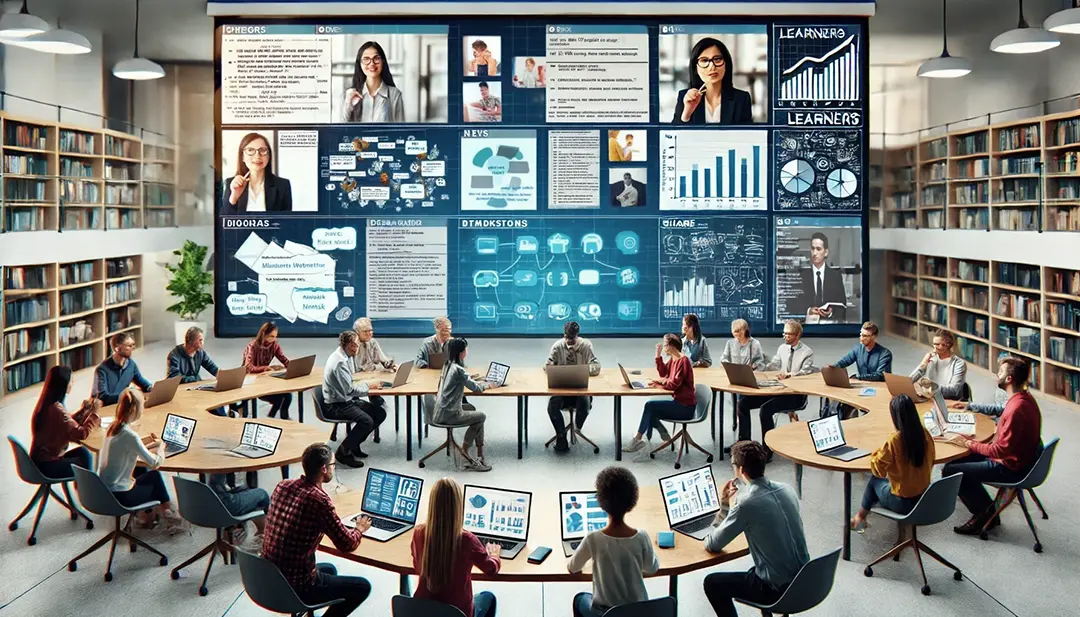Academic Papers
Academic Papers

Essay 1: Pedagogy in the Age of Web 2.0
This paper discusses the impact of Web 2.0 technology and internet memes on learning design and learning.
Key takeaways:
- Imitation is a fundamental part of language acquisition and human development.
- Memes are units of cultural transmission or imitation that can be replicated and spread through imitation.
- Internet memes are memes that have evolved and mutated in the digital age, and can be deliberately altered and spread through human creativity.
- Web 2.0 technologies, such as social media and online communities, have had a significant impact on culture, society, politics, and education.
- Digital literacy is crucial in the age of Web 2.0, as it allows individuals to navigate and understand the power and potential dangers of internet memes and online communication.

Essay 2: From Objectivism to Constructivism
This paper is about the evolution of a blended multimedia writing course from traditional design to constructivist learning design.
Key takeaways:
- Impact of Web 2.0: Web 2.0 technologies have significantly influenced all aspects of life, including education, by enabling rapid cultural transmission.
- Evolution of Memes: Internet memes, evolving from Dawkins’ original concept, are powerful cultural transmitters shaped by human creativity.
- Cultural Inversion: Web 2.0 technologies enable deep connections despite physical distances, leading to significant societal changes.
- Digital Literacy Challenges: Integrating digital literacy into education is essential to help students navigate online risks and develop critical thinking skills.
- Technological Competence in Education: Re-educating reluctant teachers in digital literacy is crucial for helping students understand and use digital tools constructively.
Thought Papers on Objectivism, Empowerment, and Constructivism
Classroom Management Effectiveness
Are behaviourist classroom management techniques effective for higher level learning?
Can Neuroscience Empower Teachers?
Does a basic understanding of neuroscience really increase the potential for empowering teachers?
Truth, Knowledge, and Constructivism
Do good test scores that result from behaviourist pedagogy relate more to training or learning?
A Comparison, a Critique, and a Research Proposal
Provincial eLearning Comparison
Comparing Two Provinces: Postsecondary eLearning in Ontario and Alberta
Lesson Plan Critique
Should lesson plans be so precious that they are written in stone or should they live?
Research Proposal
How should in-person classes be redesigned as Blended Learning courses in Higher Ed?
Three Thought Papers on Objectivism, Empowerment, and Constructivism
Classroom Management Effectiveness
Are behaviourist classroom management techniques effective for higher level learning?
Can Neuroscience Empower Teachers?
Does a basic understanding of neuroscience really increase the potential for empowering teachers?
Truth, Knowledge, and Constructivism
Do good test scores that result from behaviourist pedagogy relate more to training or learning?
A Comparison, a Critique, and a Research Proposial
Provincial eLearning Comparison
COLLABORATION – Comparing Two Provinces: Postsecondary eLearning in Ontario and Alberta
Lesson Plan Critique
Should lesson plans be so precious that they are written in stone or should they live?
Research Proposal
How should in-person classes be redesigned as Blended Learning courses in Higher Ed?


